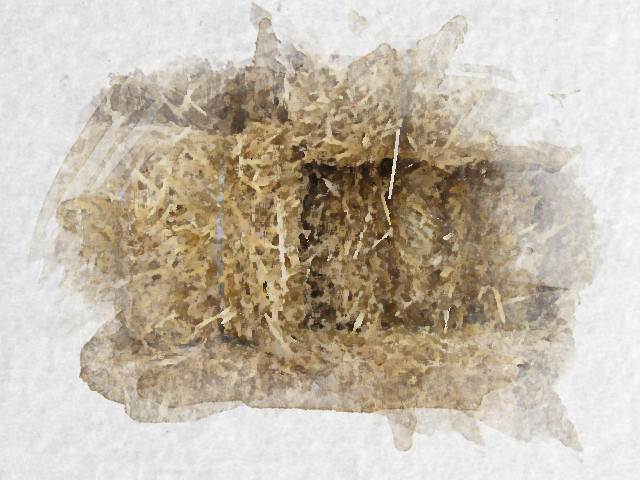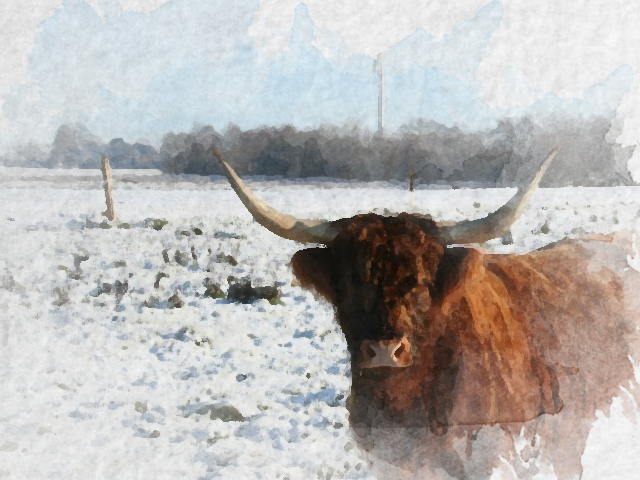“We just do not know what’s going to happen beyond Brexit.” It’s an icy December morning when I catch James Davidson, skating down the farm close to his office. A few days ago, snow fell across the country, and in the north east of Scotland it’s still clinging to the ground—an extra challenge for the lorries carting barley, wheat and oilseed rape away from the Davidsons’ farm. There’s nothing new about weather getting in the way, though, and if it means hours guiding drivers on the slippery track to the grain stores, then that’s what the Davidsons will do.
It’s been eight years since James came back to the family farm. After leaving home for university, work took him as far afield as Japan, but ten years later, a growing interest in agriculture brought him back to Scotland. Now in his thirties, he’s running the business with his father, and starting a family of his own: this isn’t the time for uncertainty.
Access to European markets was the key driver of James’s vote to remain in the EU: Brexit means uncertainty for his business, a challenge that’s particularly acute given farming’s notoriously slim profits. “It’s very difficult to really make any longterm planning decisions at the moment: we just do not know what trading conditions we’ll be operating within.”
But James remains positive, or seems to: “As an industry, we’ve always been used to working against an uncertain backdrop. It’s always a very volatile market place.”
Nearly 500 miles away, near the Brecon Beacons, John Davies is feeling about the same. He may be farming beef and lamb in the Welsh hills, but the challenge facing him is similar to that facing any businessperson: “I've made the investment, its more than often a big investment—you need to have an idea of what marketplace you're going to be in. Our calves that have been born today, the cow will face a post-Brexit marketplace already.”
“So, it's really, really important that we know where we are going forward: if you're going to dive off a cliff, the first thing you do is check to see how deep the water is.”
It sounds bleak, but even over the phone I can hear the energy. John’s enthusiasm for the industry is tangible. When I ask how he voted in the referendum (Remain, it turns out) he brushes the question aside: “Remain or Leave, that vote is done, and now we've got to get the very best deal.”
And he’s right, of course. Besides new trading conditions, Brexit will give the UK government control over agricultural subsidy, and in formulating subsidy policy, government will be forced to reassess what kind of industry farming is and should be.
***
There was a taste of what that future might look like recently, when environment secretary Michael Gove announced an extension of the Brexit transition period for agriculture: farming subsidies will remain the same until 2022, when Britain will begin to move towards its own support system. But beyond that, the future is hazy. Gove has hinted at a policy based on environmental stewardship and public access to land, criticising the EU’s Common Agricultural Policy (CAP) for a piecemeal approach that’s had little positive impact on the environment. But it’s unclear how his suggestions—tree planting, returning land to meadows, and clearing waterways—are really any different. Besides, 2022 is a long way away: in politics, the Department of Environment and Rural Affairs, DEFRA, is sometimes referred to as “death row”—where careers go to die. In the last two years alone there have been three different environment secretaries.

***
David Pridgeon farms in Lincolnshire, near Boston: almost all his produce goes directly into food and drink: barley for beer, wheat for bread, oilseed rape for cooking oils and spreads, plus strawberries and raspberries. “Do consumers really want the very cheapest food, from anywhere in the world, which is produced to lower environmental and animal welfare standards?” he asks. “I'd like to think they don’t. I know prices are important but at the moment food is almost too cheap, and it's not valued: when you've got milk in the supermarket for less than the cost of a bottle of water, there's something fundamentally wrong.” Dairy farming has been a high-profile casualty of low prices: in 2016, over 1,000 dairy farms had been lost in just three years in England and Wales. “The producer pays for these promotions not the retailers,” Mr Pridgeon explains. “They're using food as a weapon, these global retail businesses. It's easy to use food as a tool to be competitive, but it's the producers who pay for it.”














